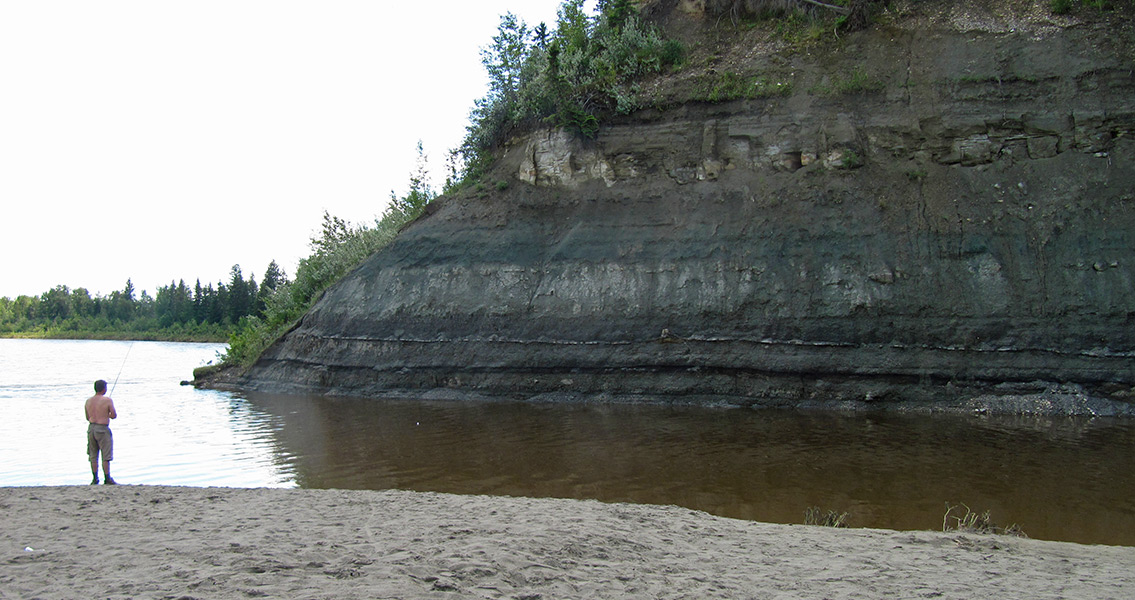<![CDATA[Not all fossil discoveries are the result of exhaustive paleontology digs out in the deserted regions of the globe. In fact, there are many instances where fossilised remains of long-extinct animal and plant species have been uncovered completely by accident or happenstance – and this is exactly the case with the recent discovery of five 60 million year old fish fossils made during the excavation of a basement in Alberta, Canada. The find was discovered by Edgar Nernberg as he toiled away, digging the basement for a new home to be constructed in the Evanston neighborhood of the city of Calgary. Nernberg, an amateur fossil hunter from childhood, knew almost immediately that the nearly perfectly-preserved school of prehistoric fish he had found was something special . “The something I noticed was quite extraordinary,” the excavator said, adding that he “knew right away that this was different from the other fossils I have uncovered in my many years of excavating and collecting fossils.” Paleontologists from the University of Calgary agreed with Nernberg’s assessment. Assistant professor of geoscience Darla Zelenistky remarked that it was a rarity to discover such well-preserved specimens of Alberta’s fossil record from that time period. The paleontologist said that discoveries of this nature are quite significant because of the way “they shed light on the nature and diversity of animals that lived not long after the extinction of the dinosaurs.” The fossils were found in the Paskapoo Formation, a sandstone layer that stretches across a large portion of southwestern Alberta and dates from the middle to late Paleocene age. Marine fossils are common in the Paskapoo, as Nernberg can attest; he recounted how when he was a young boy, his father would point out seashell fossils found in the rocks of the Manitoba farm where they lived. Nernberg stopped his excavation as soon as he identified the fossils, as the law in Alberta requires a professional paleontologist with a permit to remove any fossils not found directly on the surface. Additionally, under Alberta law any major fossil finds are considered property of the province itself instead of the landowner in order to ensure any remains are preserved properly and subjected to paleontological research. Still, fossils often go unreported through those uncovering the finds not recognizing what they’ve stumbled upon, according to Zelenistky. Nernberg’s find is currently en route to Drumheller, Alberta, where it will be studied by scientists at the Royal Tyrrell Museum. The fossilised fish are likely to be integral to studies of the mass extinction event that is understood to have occurred around 66 million years ago; this event was responsible for killing off around 75 percent of animal species that lived on the planet at that time – including the dinosaurs. Based on geological records, this event was precipitated by a large asteroid strike in the region of the Yucatan Peninsula in Central America. This apocalyptic event altered the conditions on the planet and made much of the surface uninhabitable as a result. Image courtesy of Wikimedia Commons user: Georgialh]]>
Five 60 Million Year Old Fish Fossils Uncovered in Alberta
